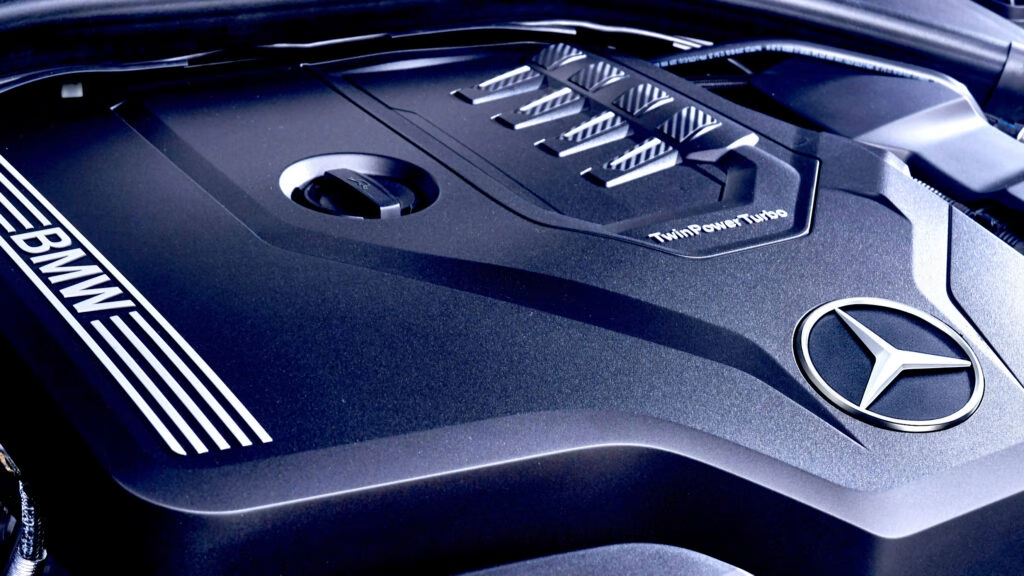Is Mercedes Really Putting BMW Engines in Its Cars? Here’s What’s Actually Happening
Did you hear the rumor that your next Mercedes might come with a BMW engine under the hood? That story’s been making the rounds, and honestly, it’s easy to see why it caught fire. Two German giants, both with legendary engineering pedigrees, teaming up to share engines? That’s the kind of plot twist that gets car enthusiasts talking. But let’s hit the brakes for a second and see what’s really going on.
Why Did People Think Mercedes Would Use BMW Engines?
The rumor mill started churning after reports out of Germany suggested Mercedes and BMW were in talks about sharing engines and transmissions. The supposed motivation? Rising costs as Mercedes gradually transitions to electric vehicles. With EV development eating up budgets and regulatory pressures mounting, it’s not crazy to imagine automakers looking for ways to save a buck or two. The story even claimed that Mercedes was eyeing BMW’s turbocharged 2.0-liter four-cylinder—a workhorse found in everything from sporty sedans to compact SUVs.
There was talk of the first BMW-powered Mercedes arriving as soon as 2027. For a minute, it seemed like the kind of pragmatic, cost-cutting move that’s become increasingly common in the auto industry. After all, we’ve seen unlikely partnerships before—think Toyota and Subaru with the GR86/BRZ twins, or Ford and Volkswagen collaborating on commercial vans.
What Does Mercedes Say About These Rumors?
Here’s where things get interesting. Mercedes didn’t just sidestep the rumors—they shut them down, hard. Markus Schaefer, the company’s Chief Technology Officer, told Italian outlet Motor1 at the Munich Motor Show that there’s simply “no truth to this.” In his words, Mercedes has already developed its own new family of modular engines, known as FAME (Family of Modular Engines). These engines are designed to meet the strictest emissions standards in the EU, China, and the US.
Schaefer’s message was clear: Mercedes isn’t looking to BMW—or anyone else—for help with its core powertrains. They’ve invested heavily in their own tech, and they’re not about to hand over the keys to their identity.
What’s Special About Mercedes’ New Engines?
Let’s dig into what Mercedes has actually built. The FAME modular engine family is at the heart of their next-generation vehicles, especially those based on the new MMA (Mercedes Modular Architecture) platform. This platform is flexible enough to underpin everything from compact sedans to crossovers, and it’s designed with electrification in mind.
Take the new M 252 engine, for example. It’s a turbocharged 1.5-liter four-cylinder paired with an eight-speed dual-clutch transmission and an integrated electric motor. The hybrid setup uses a 48-volt lithium-ion battery (with up to 1.3 kWh capacity), delivering a combined output of 188 horsepower in the US. This isn’t just about fuel savings—it’s about smooth, responsive power and meeting tomorrow’s emissions standards today.
The M 252 is already making its debut in the latest Mercedes CLA and will soon find its way into other MMA-based models. The company’s commitment to in-house hybrid tech is a big deal, especially as the industry wrestles with the balance between electrification and the continued demand for efficient, engaging gasoline engines.
Why Are Engine Partnerships So Common—And Why Not Here?
It’s worth noting that engine and platform sharing is nothing new in the car world. Automakers have been collaborating for decades to spread out development costs, especially as vehicles get more complex. But for Mercedes, engines are a core part of their brand DNA. The sound, feel, and performance of a Mercedes engine are as much a part of the experience as the three-pointed star on the hood.
That’s likely why the company is doubling down on its own modular engine family, even as it invests billions in electric vehicle development. By keeping control over its powertrains, Mercedes ensures that every car feels, drives, and sounds like a Mercedes—no matter what’s under the hood.
What Does This Mean for Mercedes Buyers?
If you’re shopping for a Mercedes in the next few years, you can rest easy: you’re getting a car powered by Mercedes’ own engineering. The new hybrid four-cylinders are designed for efficiency and performance, with a focus on meeting tough new emissions rules without sacrificing the driving experience.
For buyers, this means you’ll see more electrified options—mild hybrids, plug-in hybrids, and eventually full EVs—across the lineup. But the heart of each car will still be a Mercedes engine, not a borrowed BMW unit.
The Big Takeaway for Car Fans
So, will you find a BMW engine in your next Mercedes? Not a chance. Mercedes is sticking to its guns, rolling out its own advanced hybrid engines as it navigates the tricky road to electrification. The real story here isn’t about secret partnerships—it’s about Mercedes betting on its own engineering to keep the brand’s character alive, even as the industry changes.
The big takeaway? Staying true to your roots doesn’t mean resisting change—it’s about making smarter, more deliberate choices. If you’re a Mercedes fan, start paying attention to these new hybrid engines. Try one out next time you’re at the dealership. Odds are, you’ll feel the difference before you even leave the parking lot.

